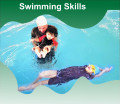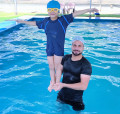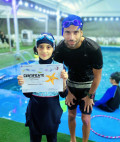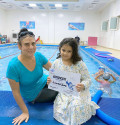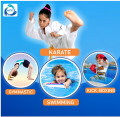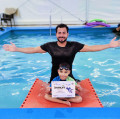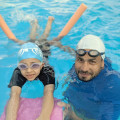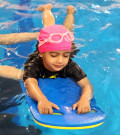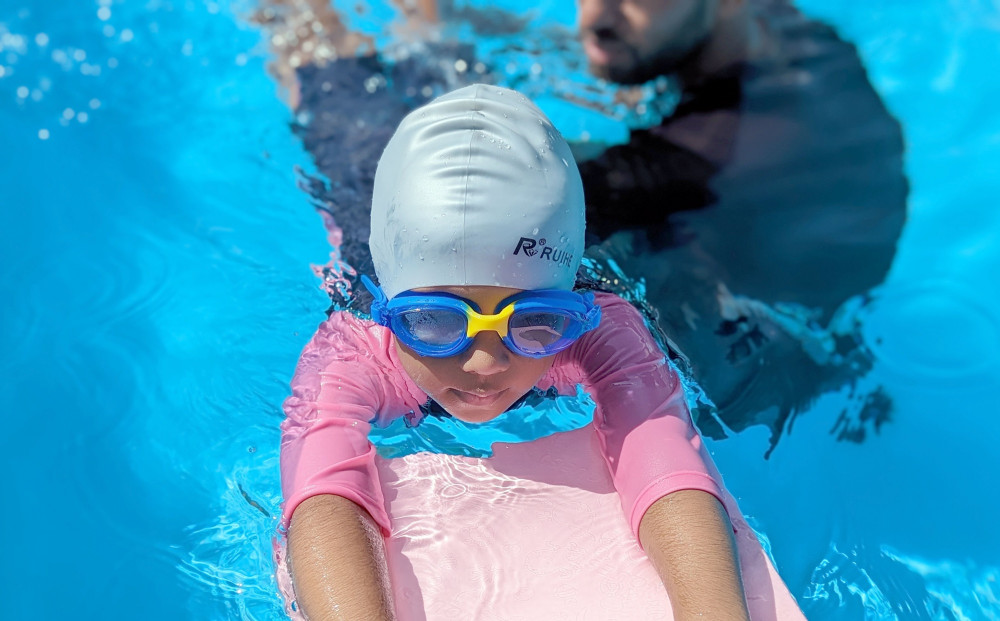
Swimming for Kids as Exercise
2024-02-05 - swimmingSwimming is not only a recreational activity but also an
exceptional form of exercise, especially for kids. In today's world, where
screen time often competes with outdoor activities, understanding the
importance of incorporating exercise into a child's routine is crucial. This
article delves into the myriad benefits of swimming for kids, encompassing
physical health, mental well-being, and overall development.
Introduction
In an era dominated by technology, ensuring that children
engage in physical activities is vital for their overall well-being. Regular
exercise contributes to the development of healthy habits that can last a
lifetime.
Benefits of Swimming as Exercise
Swimming, often regarded as one of the most comprehensive
workouts, offers a unique set of advantages for children. From enhancing
physical health to fostering mental resilience, the benefits are vast.
Physical Health Benefits
Unlike some sports that focus on specific muscle groups,
swimming engages the entire body. From arms and legs to core muscles, every
stroke contributes to a full-body workout, promoting balanced physical
development.
Cardiovascular Health
Swimming is an excellent cardiovascular exercise. It gets
the heart pumping, improves circulation, and helps maintain a healthy
cardiovascular system from a young age.
Improved Muscular Strength
The resistance provided by water during swimming strengthens
muscles, contributing to improved muscle tone and endurance. This can be
particularly beneficial for children in their formative years.
Mental Health Benefits
Swimming has a calming effect on the mind. The rhythmic
nature of strokes and the weightlessness in water create an environment
conducive to stress reduction and relaxation.
Boosting Mental Focus
Through various swimming techniques, children learn to focus
on their movements and breathing. This enhanced concentration can have positive
effects on academic performance and cognitive abilities.
Confidence Building
Achieving swimming milestones, such as mastering a new
stroke, builds a child's confidence. Overcoming challenges in the pool
translates to increased self-esteem in other areas of life.
Social and Emotional Development
Participating in swimming lessons or team activities in the
pool fosters teamwork and camaraderie among children. These social skills are
valuable for their overall development.
Overcoming Fears
For some children, the fear of water is a significant
hurdle. Swimming provides a structured environment for them to overcome this
fear, teaching valuable lessons about facing and conquering challenges.
Developing Friendships
Shared experiences in swimming classes or at the local pool
create opportunities for children to form friendships. The social aspect of swimming
contributes to a child's emotional well-being.
Conclusion
Swimming for kids is not just a pastime; it's a holistic
exercise that contributes to their physical, mental, and emotional well-being.
The benefits extend beyond the pool, shaping healthy habits and positive
attitudes.







.jpg)




































































